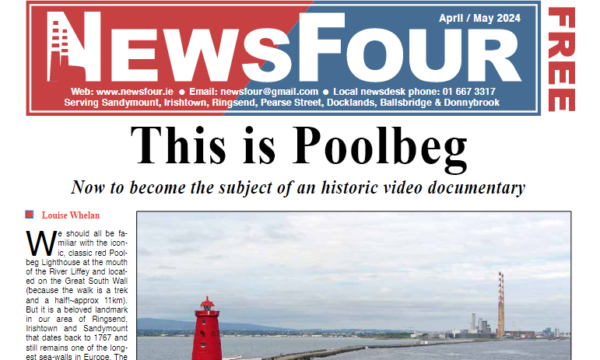
Polyester threads. Image courtesy of Plasticinsights.Com
By Geneva Pattison
The first few months of every new year can be a challenging time for people, especially when trying to save money. Costs can easily spiral out of control.
With high street advertising hijacking the TV and online and print adverts, the humble, local charity shop is sometimes overlooked. From classic dishware to fashionable clothing, you may strike gold and at a reasonable price.
Ringsend has two wonderful secondhand shops conveniently located next door to each other, NCBI and NCBI kids. These shops offer a wide selection of clothes and other items for the home for you to peruse.
You also have the added bonus of supporting a worthwhile cause. The National Council for the Blind Ireland works with people experiencing sight loss of any kind by providing them with various services to assist them in their day to day living.
Small steps for a sustainable future.
Aside from saving money and supporting a charity, you will be promoting a more balanced environment. Fast fashion brands churn out clothes so often that they are a huge contributor to the amount of waste in our world.
Similarly, the factories involved in the production of these clothing items are still a long way from being environmentally sound in their manufacturing methods, sending large amounts of toxic waste into the atmosphere.
As analysed by the World Resource Institute, the process of making polyester materials released 706 billion kg in greenhouse gases in 2015 alone. When you factor in how far each item of clothing has travelled too, there’s a further carbon footprint involved.
Plasticinsight.com have released statistical graphs showing that in 2016 polyester dominated the sales market in Europe and from the same year, they also found that Germany was the biggest exporter of the material in Europe, sending out the equivalent of a staggering €1029.2 million worth of polyester.
Be the Change.
By buying secondhand you’re making the active change towards more ethical living. This doesn’t mean you have to purchase all your items second hand, but every small step we take towards environmentally conscious fashion consumption helps.
We can play our part at home in many ways by conserving our existing clothing, repurposing old clothes and trying to recycle old materials. Speaking locally to the Ringsend NCBI, they have said that, they are always accepting new donations. So pop in, drop off a few bits and bobs and see if you can discover something new.
There is no longer a stigma in buying pre-loved items, secondhand is the new vintage. Disposable clothing may be a fact of life but let’s try not to dispose of our future.
To see more figures from the WRI, follow the link below:
https://www.wri.org/blog/2017/07/apparel-industrys-environmental-impact-6-graphics
Find statistics from plastic matters at:
https://www.plasticsinsight.com/resin-intelligence/resin-prices/polyester/#market



